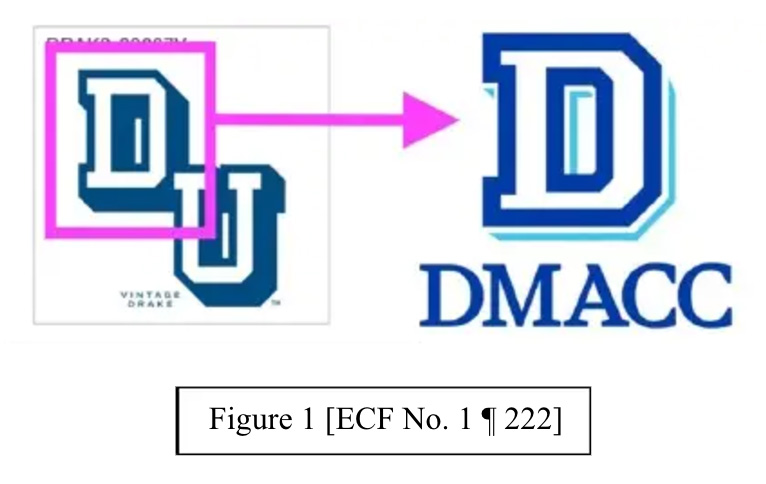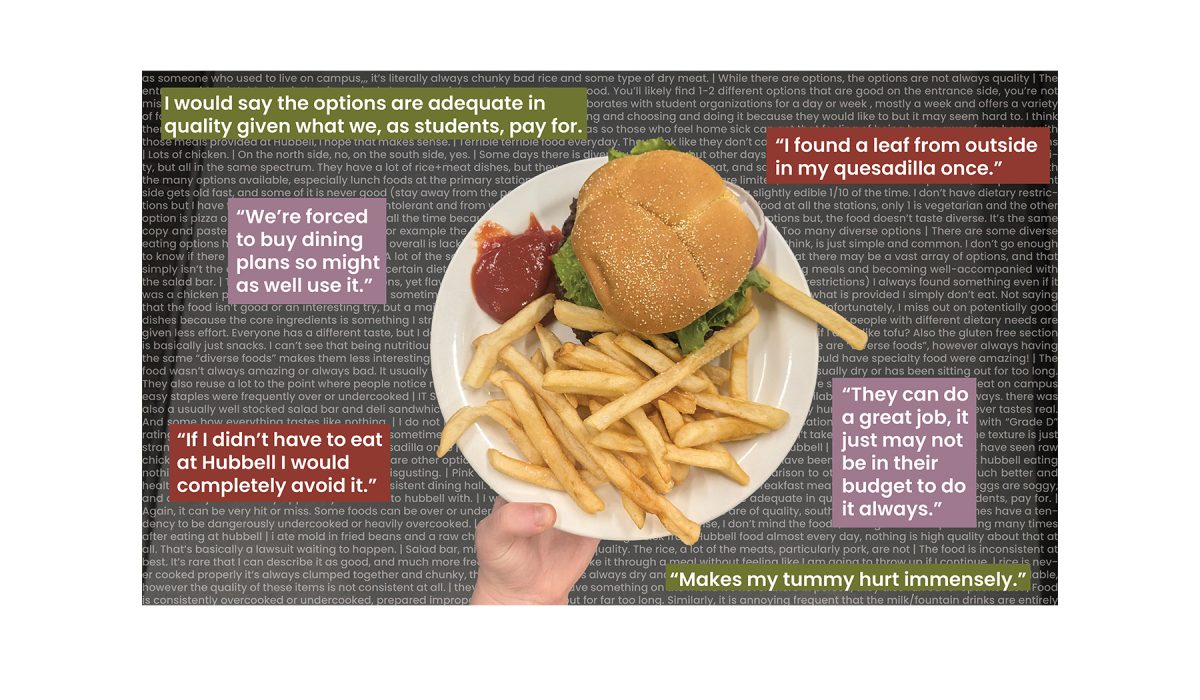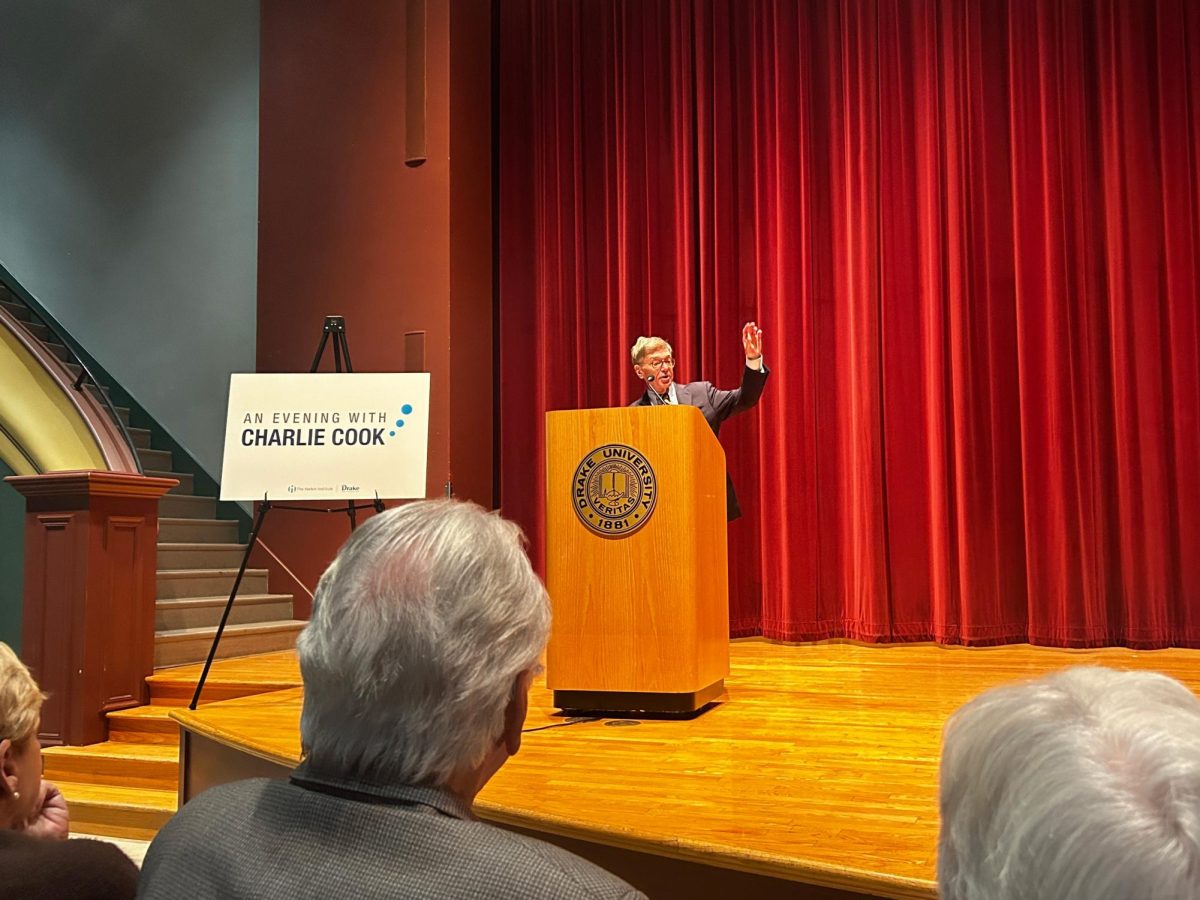Column by Ben Levine
Levine is a junior politics major and can be reached at [email protected]
 Coincidentally, almost exactly one year ago I wrote a piece in The Times-Delphic about the minimum wage. My thoughts on this issue have not changed since, though they have become more pertinent due to the recent call for an increase in the federal minimum wage to $9 per hour. I’ll put forth a couple of points below: first, the minimum wage simply is not a sound economic policy and, second, it in fact mostly hurts those that it is meant to help. Of course, I don’t expect many Drake students to agree with me — I’m sure I’m in the minority by opposing an increase in the minimum wage (and by opposing the minimum wage entirely). However, one thing I’ll ask of the reader: try to read this article without the prejudicial lens that I am a heartless conservative who doesn’t want to help those who desperately need financial help. While I might not agree with you on how this should be done, I undoubtedly want the same thing you do: to help those who need it.
Coincidentally, almost exactly one year ago I wrote a piece in The Times-Delphic about the minimum wage. My thoughts on this issue have not changed since, though they have become more pertinent due to the recent call for an increase in the federal minimum wage to $9 per hour. I’ll put forth a couple of points below: first, the minimum wage simply is not a sound economic policy and, second, it in fact mostly hurts those that it is meant to help. Of course, I don’t expect many Drake students to agree with me — I’m sure I’m in the minority by opposing an increase in the minimum wage (and by opposing the minimum wage entirely). However, one thing I’ll ask of the reader: try to read this article without the prejudicial lens that I am a heartless conservative who doesn’t want to help those who desperately need financial help. While I might not agree with you on how this should be done, I undoubtedly want the same thing you do: to help those who need it.
I’ll ask this question right off the bat: if in principle the minimum wage works, why not raise it to $20 per hour? In fact, why not raise it to $100 per hour? Certainly, it would be absurd to call for a $100 per hour minimum wage. But it is absurd precisely because it does not work in principle. If those who support the minimum wage as a means to pulling people out of poverty are so sure it works then they would follow their logic into the stratosphere and raise it to $1000 per hour. However, they stop right at the point of only affecting marginal workers.
The way wages function in a free-market system is admittedly uncomfortably detached from emotions. Wages are based on supply and demand, on the price of one’s productivity. For instance, albeit this is a very simplified example due to the contract regulations in professional sports, the reason why professional athletes make so much money is because there is a high demand for them and a low supply of them. This does not mean that they are personally worth more than, say, a janitor — however, it should be fairly obvious that more people can fulfill the demand for janitorial duties than people can for being a professional athlete. As Charlie Virgo writes, “Just as not all products are worth paying $7.25 to receive, not all jobs are worth paying $7.25 to have someone complete.”
For various reasons, though, the minimum wage does not have a direct causal relationship to shifts in unemployment rates. This is, in part, due to how unemployment is defined in America. Still, it is naive to believe that the minimum wage doesn’t put people out of work (there’s plenty of evidence to show that it does). By increasing the minimum wage, those people who are affected most are those that have skills that demand a lower wage than the minimum —these workers are outlawed from signing a private contract with an employer that falls below “X” dollars per hour. You may be thinking, “Well, why can’t a business just pay a little more, then?” Simply, because this is not how wages function in a free-market. If you disagree with free-market wages, then perhaps we should have a larger discussion about our entire free-market economy (or, at least, what is left of it).
As a result we see unskilled laborers, usually young people, hurt most by the minimum wage. Young people need to gain work experience and skills that make them more qualified for other higher paying jobs — contrary to the feeling of many young people, we are not entitled to anything (especially not a wage of our choosing). That isn’t how the world works. We need to work in order to be more qualified, simply put. Unfortunately, that may mean working for $5 per hour in order to build such skills. However, with an increase in the minimum wage, employers are told, “You cannot hire somebody that’s production level demands a wage less than $9 per hour.” There have been numerous studies on the issue, and I will not exhaust them here, but it should be relatively easy to see that, as Tim Worstall of Forbes online accurately asserts, “It will be those with the lowest productivity, the young, who will find the minimum wage biting into their employment prospects.”
Of course, I don’t expect many people to agree with this. There is a natural inclination to raise the minimum wage because of its seemingly “progressive” nature. However, I challenge you to think about the inherent contradictions of the policy and those who support it (let’s raise the minimum wage, but not too much). Additionally, consider how wages function without letting emotion enter too far into the discussion. Through this lens you may find that eliminating the minimum wage does a lot more for people who need financial help than increasing it does.







Shelly • Apr 1, 2013 at 9:29 am
If the minimum wage is lowered does that mean the price of goods and services is going to be lowered? I think not. People need to live, which means working, paying bills, buying food, and having a place to live. Have you ever made less than minimum wage…say as a server in a restaurant or bar? Because I have, and when you get paid far less then $7.25/hour (say $4.75/hour) and rely on tips and people are shitty in general on their tips, you make less than minimum wage and end up having to get one or two more jobs. There’s no reason though for companies that make money hand over fist to not pay a decent minimum wage that allows for individuals to sustain their lives with basic necessities.
If you’re going to advocate for no/low minimum wage in an effort to encourage education, are you going to advocate for affordable and accessible education (this would also include vocational schools) for everyone, even if that raises the taxes you pay? And if everyone was educated and wouldn’t have to work for minimum wage, there would be little to no supply of individuals such as janitors, so you’re going to shift the equilibrium of supply and demand, which according to your argument would also shift wage allotments.
I understand-your a business guy. Humanity means nothing to the business world.